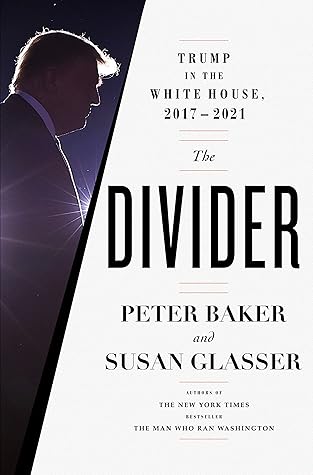More on this book
Community
Kindle Notes & Highlights
by
Peter Baker
Read between
June 20 - June 25, 2023
The painful fact is that those who stopped Trump from committing this or that outrage also helped him learn how better to get what he wanted the next time.
Trump’s mind was “unusual,” Sternlicht said. Something was “wrong” in his head. He could not pay attention, could not do details, was not bothered by inconsistency. “He hasn’t read a book in thirty years,” Sternlicht said. “He’s not encumbered by the truth.”
He did not know that Puerto Rico was part of the United States, did not know whether Colombia was in North America or South America, thought Finland was part of Russia, and mixed up the Baltics with the Balkans.
On the same day in December that Obama imposed sanctions on Russia for its pro-Trump election interference, Flynn spoke by phone with Sergey Kislyak, the Russian ambassador, not once or twice but five times, at one point urging Moscow not to escalate in response to the sanctions and suggesting the new administration would reverse Obama’s tougher policy.
When Cohn fell ill with AIDS, he denied it and insisted it was liver cancer, but Trump knew because everyone knew and pulled some of his business.
Cliff Sims, a media aide, thought it was more like “Game of Thrones, but with the characters from Veep,” as he put it in a later book aptly named Team of Vipers.[2]
But the Justice Department’s long-standing policy, formulated under one president facing impeachment (Richard Nixon) and reaffirmed under another (Bill Clinton), held that a sitting president could not be indicted for a crime while in office. Although that opinion was hotly debated and had never been tested in court, Mueller under special counsel regulations was bound by it. But Mueller took it one step further: if he could not indict Trump, he told his staff, then he should not even state in his report that the president had violated the law because Trump would have no opportunity to defend
...more
Esper now called John Kelly seeking counsel on how to navigate the unpredictable president. “How do I survive?” Esper asked. “You survive if you completely compromise your standards and your integrity and you become a yes-man and a lackey,” Kelly later recounted telling him. “I can’t do that,” Esper replied. “I know,” Kelly responded. “That’s why you’re going to get fired.”
The two previous impeachment inquiries of the modern era had been driven by special prosecutors backed by the resources of the Justice Department and FBI. This time, Congress would have to handle the probe on its own and even the courts would be of no practical help given the months and sometimes years it took to resolve disputes between the branches.
When Romney stood on the floor to announce his decision, it was such an overwhelming moment that he choked up, pausing for twelve long seconds to compose himself, before declaring that he would vote to convict on Article 1, the abuse of power charge, although he would not back Article 2 on obstruction of Congress. His lone vote meant nothing to the outcome, but it would be the first time in American history that a senator voted to convict a president of his own party in an impeachment trial.


